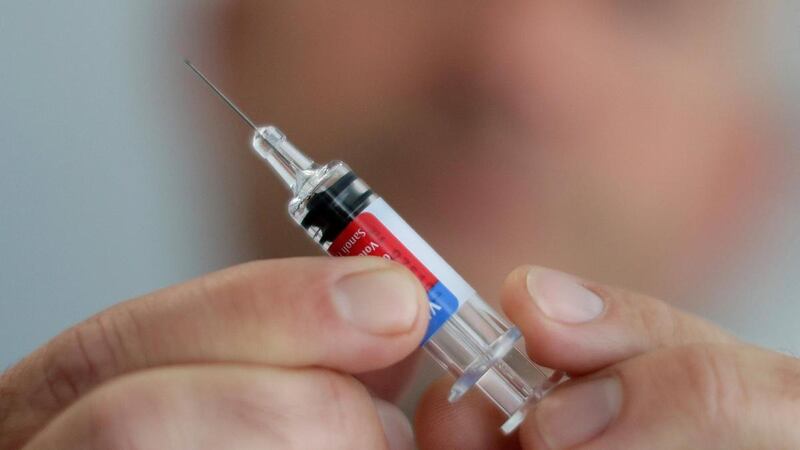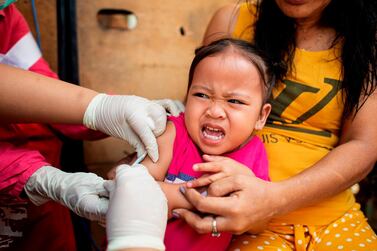Richer and more developed nations appear to have a lower trust in immunisation than those in the developing world, a major new study has found.
Eight out of 10 people – or 79 per cent – around the world still believe vaccines are safe, a new report by the Wellcome Trust, a UK-based biomedical research charity, has found. But in Western Europe that number drops to just 59 per cent.
In Eastern Europe, the figure is even lower, with just 40 per cent of people saying they have confidence in immunisation, despite vaccines being the most effective and widely used tool in the global fight against disease.
The study found France to have the least confidence in the safety of vaccines of any country, with a third believing they are unsafe. That’s in stark contrast to Bangladesh, where almost 98 per cent of people believe that vaccines are both safe and effective.
The UAE was among the countries with the highest belief that vaccinations are important for children to have, with 94 per cent of those asked agreeing strongly.
Millions of people around the world are protected from the deadly effects of numerous diseases because of vaccinations.
Mass-inoculations have eliminated smallpox, once a mass killer, and in China, not a single case of indigenous malaria has been recorded since August 2016. In the 1940s, before mass immunisation, 300,000 people died each year from the disease.
But there is a seemingly growing movement of people that don’t believe in their safety, threatening to roll back gains made in disease prevention over the last century.
"Wellcome Global Monitor presents an unprecedented view of the relationship between science and society worldwide,” the organisation’s director, Jeremy Farrar, said in a statement accompanying the report.
“No matter how great your idea, how exciting your new treatment, or how robust your science, it must be accepted by the people who stand to benefit from it.”
This, he said, has particular focus for areas such as immunisation.
“Vaccines are one of our most powerful public health tools, and we need people to have confidence in them if they are to be most effective," he said.
The Global Monitor report for 2018 surveyed over 140,000 people from 140 countries to assess how people see science and the major health challenges the world faces.
The findings not only help map the level of attitude to specific questions around healthcare and science – such as finding that men are more likely to claim a greater knowledge of science than women – but also show how people’s perceptions could offer solutions to issues such as vaccine scepticism.
The report found that 72 per cent of people say they trust scientists and 73 per cent trust health advice from doctors and nurses more than from any other source.
Public health experts and the World Health Organization say vaccines save up to three million lives every year worldwide.







